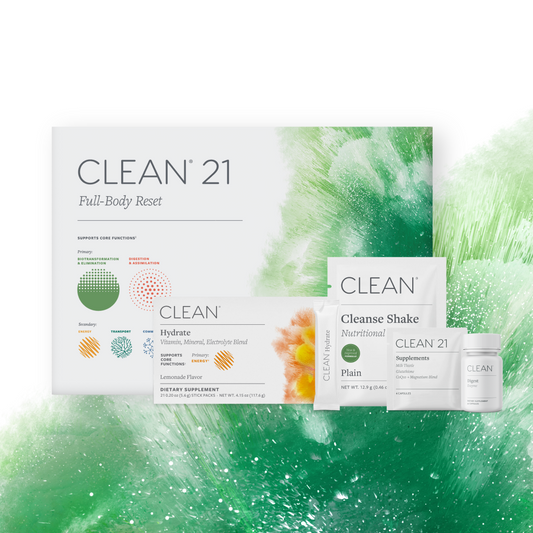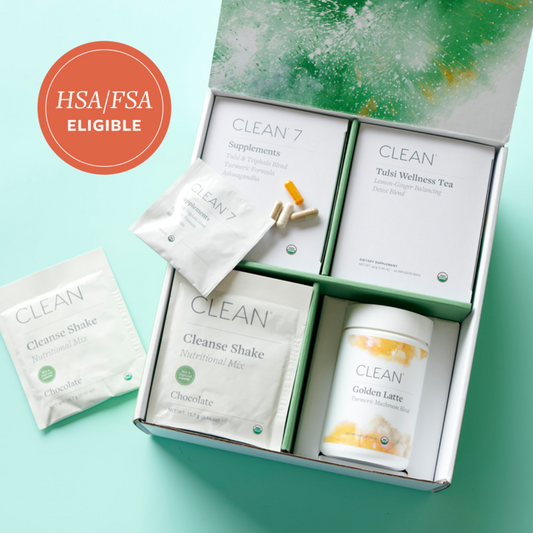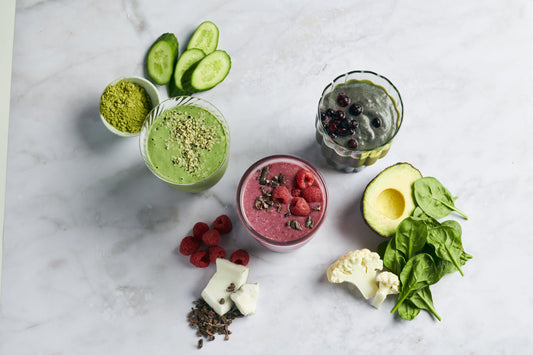
4 Things You Can Do To Support Longevity
Even though we often associate genetics with aging, it is now well-known that only 20-30% of longevity is related to genetics. This means that environmental factors such as diet and lifestyle play a much larger role in how long we live and how we feel while aging.
Longevity is the buzz word nowadays. Everyone wants to know what do to do delay the onset of aging and reduce our biological age.
This article defines aging as "the time-related deterioration of the physiological functions necessary for survival and fertility." But this deterioration starts earlier or later in life depending on many factors. And research now says that we can delay that deterioration with certain diet, lifestyle, and other "hacks" that not only reduce our biological age, but also help prevent conditions and diseases that come with aging.
Even though we often associate genetics with aging, it is now well-known that only 20-30% of longevity is related to genetics. This means that environmental factors play a much larger role in how long we live and how we feel aging. These environmental factors are mostly diet and lifestyle habits.

As some researchers say, "aging" with pains and aches as we know it doesn't have to be that way. In fact, the famous Blue Zones are geographical areas in the world where people live longer and lead healthier lives--lower rates of chronic disease--compared to other parts of the world.
These are the five Blue Zones that Dan Buettner identified in his book:
- Icaria (Greece)
- Ogliastra, Sardinia (Italy)
- Okinawa (Japan)
- Nicoya Peninsula (Costa Rica)
- The Seventh-day Adventists in Loma Linda, California (USA)
Dan Buettner and other researchers such as David Sinclair, Valter Longo, among others, have dedicated their careers to studying what makes us age slower or delay the onset of aging the most. Below is a summary of science-backed practices that can help support longevity:
1) Eat More Plants & Less Processed Meats
A study published in the PLOS of Medicine showed that people who transitioned to a diet with more fruits, vegetables, whole grains, nuts, legumes, and fish, and reduced their intake of red and processed meats, refined grains, and sugar-sweetened beverages, increased their lifespan by 8-13 years.
In the Blue Zones, beans are central in most centenarian diets. These include fava beans, black beans, soy, and lentils. In these areas, meat is eaten on average only a handful of times per month.
Finally, there are some plants that have a higher potency and impact in longevity or extending your healthy life. These are plants that have gone through "stress" or “xenohormesis.” In these plants, you'll find an abundance of life-promoting molecules and polyphenols, such as "resveratrol from grapes, aspirin from willow bark, metformin from lilacs, epigallocatechin gallate from green tea, quercetin from fruits, and allicin from garlic." Watch this video where David Sinclair, PhD, talks about examples of stressed plants for longevity.

2) Eating Less Often & Fasting
Eating less often has been associated with lower levels of inflammation in the body and disease and an increased lifespan. Prof. Valter Longo developed a "longevity diet" based on his research, and explains that at least a 12-hr fast per day is crucial.
Our Clean 21 and Clean 7 programs promote at least a 12-hour fasting window. Clean 7 involves a protocol that builds up towards a 24-hr fast in the middle of the week. Both programs help you build your "fasting muscle" or the metabolic flexibility you need to help your body use up existing resources and fat instead of only glucose from immediate food to convert it to energy to function.
So why does fasting promote longevity? The main idea here is that as your cells become stressed in lacking glucose from food for extended periods, they activate repair and cleaning mechanisms that help your body get rid of aging and senescent cells. These cells can later cause cancer and other chronic diseases. Dr. Junger, Clean founder, explains this concept in this video.
If you want to implement extended fasts above 12-14 hrs a day, the best idea is to consult it with your physician, particularly if you have any pre-existing medical conditions.
3) Move More & Do Moderate Exercise
There is widespread evidence that moving more is beneficial for our health. A large study that followed 10,000 men and women for decades showed that reaching at least 7,000 steps per day or 2.5 hours per week of sports or moderate exercise (30-45 min on most days) reduced the risk of premature death by 70 percent.
In his book "The Longevity Diet," Prof. Valter Longo expands on some lessons learned from the Blue Zones and exercise. He shares "What physical activity is best for healthy longevity? The one you enjoy most, but also the one you can easily incorporate into your daily schedule and the one you can keep doing up to your hundredth birthday and beyond." He also goes on to explain why using muscles is important as we age, "Every muscle of the body needs to be used frequently, because muscles grow and maintain or gain strength only in response to being challenged."
As we are learning more and more, maintaining muscle mass is especially important for longevity and to maintain a healthy metabolism. Some even coin muscle as the "currency for longevity." Watch Dr. Mark Hyman in this clip explain why maintaining muscle mass is key as we age, as well as increasing our protein intake.

4) Reduce Stress in Our Lives & Relax
Chronic stress is related to every major disease out there and it makes us age faster. When we're stressed, the telomeres in our cells shorten faster. This means that the "edges" of our genetic composition starts deteriorating faster. Plus, stress activated inflammation which is also related to accelerating the onset of aging.
In fact, some articles point out that more than 75% of doctor visits are stress-related. This means that learning how to manage our stress and find time decompress is a highly needed and valuable skill or practice to implement.
In the Blue Zones, the principle related to reducing stress is "Down shift." It's summarized as "incorporating personal routines to shake off daily stressors. These include taking breaks, getting outdoors, laughing with coworkers and friends, and energizing with physical activity." Anything that works for you that can help in taking some time off to shift your fight or flight & survival responses to a relaxation state.

A Final Note
There are many other things we can do to reduce inflammation and stay healthier for longer. Some other "hacks" include exposing our bodies to heat and cold deliberately, find purpose in your life, share meals and activities as a community, avoid toxins as much as possible, among many others.
Our Clean 7 and Clean 21 programs have been designed by Dr. Alejandro Junger to help reduce inflammation, support your gut, and enhance your own naturally-existing detoxification system. As you look and feel better, you'll learn to implement diet and lifestyle habits that you can sustain for life. Shop our programs here.







